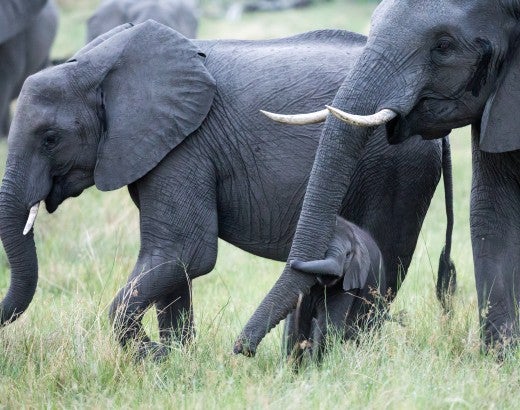In a massive step forward, Canada has just passed a ban on cosmetics animal testing and the sale of beauty products that rely on new animal test data to substantiate their safety, becoming the second North American country to do so; Mexico passed such a ban in 2021.
Our Humane Society International/Canada office has campaigned tirelessly for more than a decade to put an end to such tests with the tremendous support of our Research and Toxicology team. Our campaigning was bolstered by Animal Alliance of Canada and Lush Cosmetics, more recently leading a broader coalition of industry and nongovernmental organization partners to relegate these practices to the history books. We are thrilled that the Canadian government has heeded our call and banned this cruel and obsolete practice once and for all. The ban comes in the form of measures to amend Canada’s Food and Drug Act, contained in the 2023 federal budget bill. The amendment also bans false and misleading labeling pertaining to the testing of cosmetics on animals.

Paired with the Canadian government’s recent passage of historic measures to phase out all chemical toxicity testing on animals, this week’s victory positions Canada as a leader in advancing progressive, compassionate science. Moreover, in prohibiting cosmetics animal testing and trade, Canada now joins the European Union, United Kingdom, India, South Korea, Taiwan, New Zealand, Australia, Brazil and a total of 43 other countries that have already enacted similar bans or restrictions.
Humane Society International has spearheaded these and other legislative victories, giving the global cosmetics industry a cruelty-free makeover. The combined pressure of an ever-growing number of bans on the sale of newly animal-tested cosmetics has even been felt in China, which recently took steps to waive its longstanding animal testing requirements for imported regular cosmetics.
In the U.S., we have enjoyed great success in helping to ensure passage of 10 state-level bans on the sale of cosmetics that have been newly tested on animals with another bill heading to the governor in Oregon for her approval. But there is more to be done: For the past several Congresses, we have been pushing for a federal ban through passage of the Humane Cosmetics Act. But despite our tireless advocacy and substantial industry support, this worthy measure has yet to become law. After Canada’s and Mexico’s progress in this area for animals, it’s clear there’s a country sorely lagging behind in North America.
There is no need to continue cosmetics animal testing. Major advances in cosmetics testing technology have already helped to make it clear that no animals need suffer for human vanity. Since 2000, with our support, researchers have developed more than 50 new methods that don’t use animals to test the safety of ingredients in products such as mascara, lotion and aftershave. Instead, these new methods use sophisticated computers, 3D printers and human tissues grown in laboratories, making non-animal approaches more humane and more reliable.
And yet, around the world, rabbits, mice, guinea pigs and rats are still subjected to cosmetics testing including skin and eye irritation experiments, force- feeding and lethal-dose tests in which animals are forced to swallow chemicals until they die.
Our victory in Canada truly shows the great things that can happen when government, political interests across all party lines, industry, the nonprofit sector and the public work together to create a better, more humane future for our world.
We hope you will join us in asking U.S. legislators to follow Canada’s lead by passing a nationwide ban on animal testing.
Sara Amundson is president of the Humane Society Legislative Fund.



